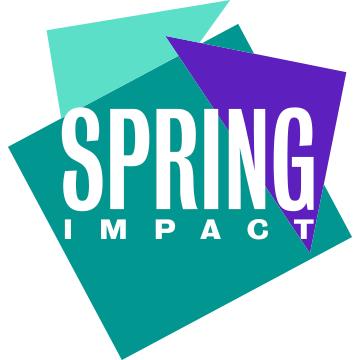Scaling Solutions To Transform Women’s Lives
The BOMA Project is empowering women in Northern Kenya and Uganda who are impacted by climate change to become economically and socially self-reliant.
BOMA’s Rural Entrepreneurship Access Program (REAP) has helped over 33,000 women start new businesses and gain the skills and confidence to move themselves and their families out of poverty. Working with Spring Impact BOMA developed a scale model to leverage strategic partnerships, enabling it to triple enrolments to REAP in just one year.
Mission
In the arid and semi-arid lands (ASALs) of Africa, residents suffer from some of the highest poverty rates in the world.
BOMA’s Rural Entrepreneur Access Project (REAP) helps ultra-poor women build a pathway out of extreme poverty, by providing them with a cash transfer to start a small business, financial and life-skills training, and two years of mentoring. The women also contribute to a savings pool, which they can use to cope with shocks, such as drought, or for business expansion and personal loans.
Building Blocks of REAP
Since 2009 REAP has helped transform the lives of 202,416 women and children by helping them break free of the cycle of inter-generational poverty.
The impact has been significant. These women can now feed their families, make long-term investments in health and education, and reduce the gender gap in their households and communities. Research shows that 94% of women “graduated” out of extreme poverty at the end of the two-year program.
Challenge
After nine years of refining and testing REAP, BOMA set its sights on scaling the project’s impact beyond Northern Kenya.
With the program already attracting considerable interest from potential partners, BOMA enlisted Spring Impact to help it develop a model and a strategy for scale.
Action
The organization pursued scale both by directly implementing REAP in new and existing counties in Northern Kenya, along with forming strategic partnerships.
Using an affiliation model, BOMA worked with a select number of large International Non-Governmental Organisations (INGOs), which were keen to build on their existing work to reduce poverty in the region with proven innovations.
Partnerships with governments and INGOS have a number of benefits. Partners bring existing resources and programs on the ground with the potential for expansive reach, whilst BOMA provides training and technical assistance, helping to adapt REAP to meet the needs of local contexts. The partnership also ensures quality is controlled and that useful effectiveness data is captured, to encourage wider uptake.
BOMA’s scale strategy has been instrumental to its success. Jaya Tiwari, Director of Strategic Partnerships at BOMA explains:
“Spring Impact was pivotal in helping us develop our scale strategy and build a plan to achieve it. They identified opportunities and challenges that helped us prepare for rapid expansion of our program across the drylands of Africa, while ensuring that our rigorous standards of execution were upheld.
”
Impact
BOMA has now formed strong partnerships with several leading INGOs including: Mercy Corps, Catholic Relief Services, and ACDI/VOCA. These partnerships are supporting scale up of REAP to reach thousands of new participants funded through USAID’s Feed the Future and Food for Peace programs.
The REAP program has gone on to launch in two new counties, so it is now working in six of the poorest and most drought-affected counties in northern Kenya: Samburu, Turkana, Isiolo, Wajir, Garissa and Marsabit. BOMA has also now successfully entered a new country, launching in Karamoja, Uganda.
Since Spring Impact and BOMA worked together, the Government of Kenya’s Programme for Rural Outreach of Financial Innovations and Technologies (PROFIT) had made the transformative power of REAP available to 1,600 women in Samburu, placing them on an upward trajectory out of extreme poverty.
Leveraging partnerships will be central to BOMA’s goal of scaling the transformative power of REAP.


